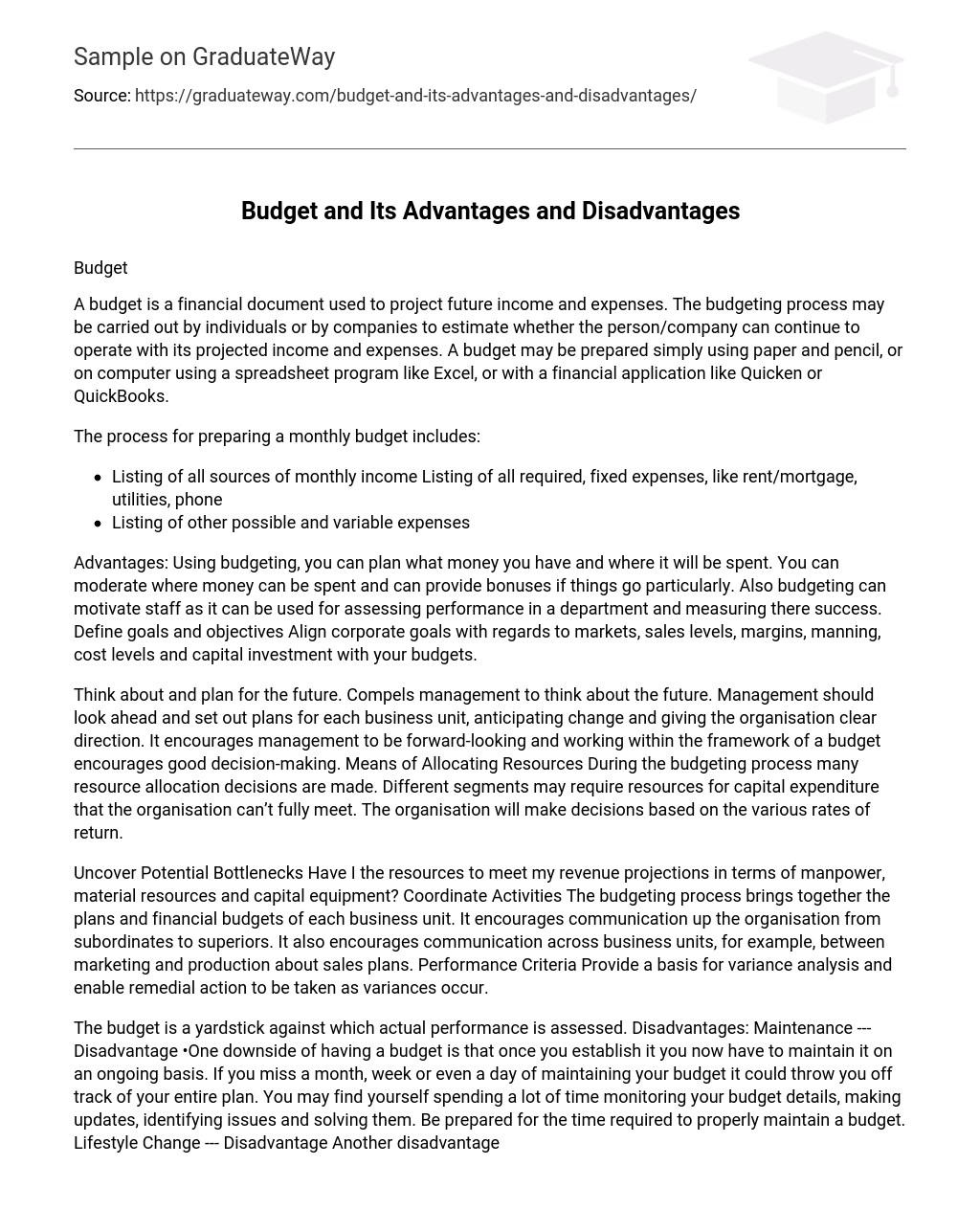Budget
A budget is a financial document used to estimate future income and expenses. It can be created by individuals or companies to assess if they can sustain their projected financial situation. Budgets can be prepared using paper and pencil, or computer software like Excel, Quicken, or QuickBooks.
The steps involved in preparing a monthly budget are as follows:
- Listing of all sources of monthly income Listing of all required, fixed expenses, like rent/mortgage, utilities, phone
- Listing of other possible and variable expenses
Advantages: Budgeting allows you to plan and allocate your available funds. It enables you to control spending, provide bonuses for exceptional performance, and motivate staff. Additionally, budgeting aids in assessing departmental performance and measuring success. It also helps in setting goals and objectives, aligning corporate goals in markets, sales levels, margins, staffing, cost levels, and capital investment with the budget.
Effective management necessitates future-oriented thinking and strategic planning. Anticipating change and providing clear guidance to all business units are essential for managers. Adopting a forward-thinking mindset while adhering to budget constraints aids in making sound decisions. Budgeting involves making choices regarding resource allocation, particularly for capital expenditure. In some instances, the organization may be unable to fully fulfill the resource requirements of certain segments. Consequently, decisions will be determined by diverse rates of return.
When analyzing my revenue projections, I need to determine if I have enough manpower, material resources, and capital equipment.
The budgeting process helps coordinate activities within the organization hierarchy and across different business units. This allows for communication between departments such as marketing and production regarding sales plans.
By providing a foundation for analyzing variances, the budgeting process establishes performance criteria and enables necessary actions to be taken when variances occur.
The budget serves as a benchmark for evaluating actual performance, but there are drawbacks to having a budget. One disadvantage is the need for ongoing maintenance. Once a budget is established, it must be continuously monitored and updated. Failing to maintain the budget can derail the entire plan, requiring significant time to identify and solve issues. Sufficient time should be allocated for proper budget maintenance. Another drawback is that a budget requires a lifestyle change, disrupting one’s routine. For example, if the budget mandates it, one may need to start making their own coffee and bringing it in a thermos instead of purchasing expensive lattes from a café. Additionally, staying on track with the budget may mean giving up certain favorite cable channels. In some cases, this lifestyle change is temporary and helps build savings or search for higher-paying jobs.





